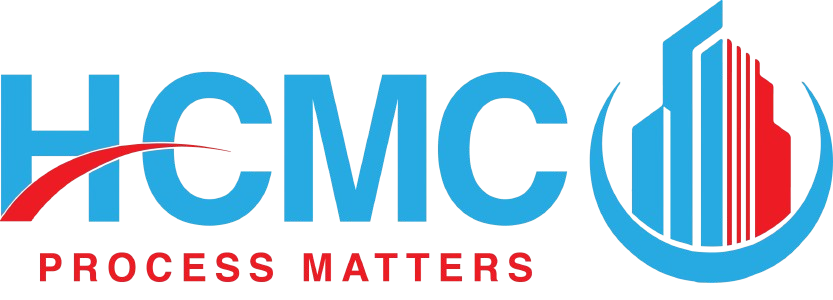The construction industry is a cornerstone of economic growth, but it’s also one of the most vulnerable sectors when global trade policies shift. One such factor that has significantly influenced construction projects in Florida and across the U.S. is tariffs. When tariffs are imposed on essential materials like steel, aluminum, lumber, or imported machinery, the entire cost structure of a construction project can be thrown off balance. For developers, contractors, and stakeholders, understanding how to manage these tariff impacts is critical to keeping projects on time and within budget.
In this blog, we’ll dive into the challenges tariffs create, strategies to mitigate their effects, and practical steps that companies like Hodge Construction Management & Consulting apply to navigate these complexities successfully.
Understanding Tariff Impacts on Construction Projects
Tariffs are essentially taxes placed on imported goods. For the construction industry, this often means higher prices for core materials such as:
- Steel and aluminum: Used in structural frameworks, roofing, and reinforcement.
- Lumber: A crucial component in residential and commercial builds.
- Mechanical equipment and machinery: Cranes, lifts, HVAC systems, and specialized tools.
When tariffs increase the cost of these materials, construction budgets inflate quickly. A project that was initially estimated at $10 million could suddenly rise to $11 million or more, depending on how material-heavy the design is. Beyond cost, tariffs can also cause supply chain disruptions, leading to delays in material availability.
Key Challenges Construction Projects Face Due to Tariffs
- Escalating Material Costs
Tariffs can raise the price of imported steel or aluminum by 10–25%, which trickles down into higher bids from subcontractors and suppliers.
- Budget Uncertainty
Clients and investors often struggle with unpredictability, as tariff-related costs fluctuate based on trade negotiations or international policies.
- Project Delays
If certain materials are held at ports due to tariff disputes or customs checks, timelines are extended, creating ripple effects across the project schedule.
- Reduced Profit Margins
Contractors and developers sometimes absorb part of the cost increases, lowering overall profitability.
Strategies for Managing Tariff Impacts
At Hodge Construction Management & Consulting, we believe effective planning and proactive management are key to handling tariff-related risks. Here are some strategies we recommend:
1. Early Procurement and Bulk Purchasing
By purchasing materials early or in larger quantities, project managers can lock in prices before tariffs increase further. This requires strategic forecasting and strong relationships with suppliers.
2. Diversifying Suppliers
Instead of relying on a single international source, working with multiple suppliers—including domestic ones—helps reduce dependency and lowers the risk of price surges.
3. Value Engineering
This involves rethinking designs or materials without compromising quality. For instance, substituting certain steel components with engineered wood products can maintain structural integrity while reducing costs.
4. Contractual Safeguards
Adding escalation clauses in contracts ensures that unexpected cost increases due to tariffs are shared fairly between owners and contractors. This transparency helps avoid disputes later.
5. Leveraging Local Expertise
Partnering with Florida-based consultants who understand regional markets can provide insights into alternative sourcing, pricing trends, and compliance requirements.
The Role of Construction Management in Navigating Tariff Challenges
Tariff impacts aren’t just about materials—they affect project planning, stakeholder communication, and financial management. That’s where construction management expertise becomes invaluable. At Hodge Construction Management & Consulting, we focus on:
- Comprehensive cost forecasting to anticipate market fluctuations.
- Scheduling adjustments that account for potential delays in material shipments.
- Risk assessments to prepare contingency plans for worst-case scenarios.
- Client communication that ensures stakeholders are aware of risks and solutions in real-time.
By acting as the bridge between owners, contractors, and suppliers, we help keep projects aligned with their original vision—even when global trade winds shift.
Final Thoughts
Managing the impacts of tariffs on construction projects isn’t about eliminating the problem—it’s about anticipating, planning, and adapting. While tariffs are outside the control of contractors and clients, the right strategies can minimize their effects on budgets and timelines.
At Hodge Construction Management & Consulting, we take pride in helping Florida developers and property owners navigate these complex challenges with confidence. By blending industry knowledge with proactive problem-solving, we ensure that projects not only withstand tariff pressures but continue to deliver long-term value.
If you’re planning a project in Florida and want expert guidance on managing costs, risks, and tariffs, we’re here to help.
FAQs
1. How do tariffs impact construction project costs in Florida?
Tariffs increase the price of imported materials such as steel, aluminum, lumber, and mechanical equipment. This leads to higher project budgets, increased bids from subcontractors, and overall financial uncertainty.
2. Why do tariffs cause delays in construction schedules?
Tariffs often slow down the import process due to customs checks, disputes, or supply chain disruptions. This results in delayed delivery of materials, which pushes project timelines further out.
3. What strategies can reduce the effect of tariffs on construction projects?
Common strategies include early procurement, bulk purchasing, diversifying suppliers, value engineering, contractual safeguards, and working with experienced construction management firms like HCMC.
4. How can construction management help mitigate tariff-related challenges?
A construction management team helps forecast costs, adjust schedules, manage risks, source alternative materials, and maintain communication between stakeholders—minimizing the overall impact of tariffs.
5. Does partnering with a Florida-based consultant help reduce tariff risks?
Yes. Local consultants like Hodge Construction Management & Consulting understand regional pricing trends, supplier networks, and procurement strategies that help reduce dependency on tariff-affected imports.
